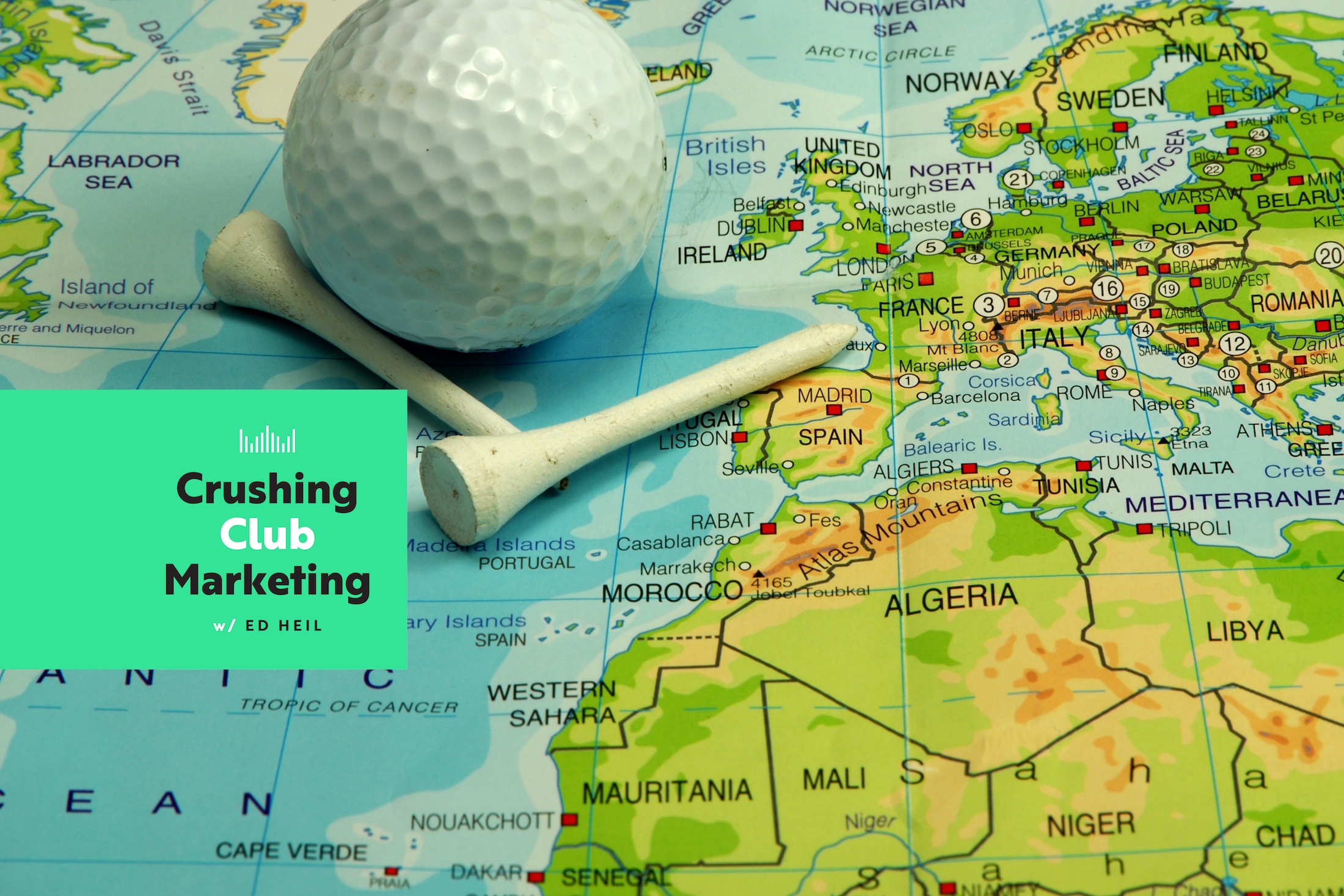Search Marketing Isn't Just "Golf Club Near Me" (Mike McAnally) [Episode 10]
Do you still expect people to find your club by typing "golf club near me" into their favorite search engine? That might have worked in the past, but...
5 min read
 Kevin Page
:
November 18, 2022
Kevin Page
:
November 18, 2022
When was the last time you went to the second page of Google's search results? Can you even remember? My guess is that it has been a while.
As Google got smarter and smarter at figuring out its audience's intent, the need to go two or more pages deep into search results just doesn't happen anymore.
As a golf or country club, this makes it all the more important for you and your organization to show up on that first page... and not just for one search, but for as many different searches as possible.
So, how do you do this? It may sound easy, but it's not something that just happens.
It all starts with a foundation of good content, but then you also want to put some search engine optimization (SEO) tactics into play within your pages.
The whole reason a search engine optimization process is important is so you can communicate the relevance and authority of your web pages for any given search result.
Unfortunately, many of the platforms that club marketers use to build their websites today make SEO a hard and arduous process to control.

But why is that important to your club? Search engines are where people go find answers. So, whether people are searching online for "Country Club Wedding Venues" or "Benefits of Joining a Golf Club", they should be able to easily find you.
This is where we marketers can get really technical and jargony in the explanation, but I like to use an analogy.
It's Google's job to understand what people are looking for and to pull the right information for them — if Google didn't do a good job at this, people just wouldn't use it. So, Google sends out a team of "smart spiders" to crawl all over your web page and look for information that will help them do their job better. They care about what's written on the page, but they also look at what is happening behind the scenes in the HTML coding.
So when you optimize your site, you are holding up small signs to tell these Google spiders what you want to be found for. The spiders are happy when all the information is provided to them and will go back and tell Google to rank you higher because they like what they see.
You should be using SEO tactics on all of your web pages from your homepage to weekly blogs. While Google doesn't tell us exactly what the spiders are looking for beyond that they crawl our pages looking for around 200 different things (yikes), we have figured out some of the critical SEO tricks to help your site gain Google authority:
It's the first thing a visitor sees when coming to one of your pages, so it's not shocking that Google weighs page titles heavily in it's grading algorithm. The most important thing to consider when developing your page title is its message match with the rest of the page.
Does this page really talk about what the title says it does?
If people come to your page thinking one thing and then find out it's another, they are going to leave quickly. The Google spiders are not going to like that.
Meta-what? Meta-who? This is just a fancy name for something really simple, but also really important.
Your Meta description is the text that you tell Google to pull into the search engine to summarize what is on a page. It's a few really concise sentences (less than 300 characters) that showcase the keyword, and why a person would want to visit this page. This is a short promo for your article that the searcher will see under the title in their search results.
Unfortunately, this is one of the areas where the club website systems really fail. Clean URLs help communicate to search engines what your main focus area or keyword is for that page. A clean URL should follow this simple format:
https://www.yourwebsite.com/keyword-phrase
Here's why this format is so important:
It is all too easy to lean towards industry terminology when it is your day-to-day job, especially because getting technical shows off your expertise. But it is important to think about what keywords you want your page to get found for. How would your ideal customer or persona search for this? What words or phrases would they use?
This is why it is important to think of your audience. Say you are a company that sells soft drinks; if you are in the South, everyone calls this Coke, if you are in the Midwest, it's pop, and everywhere else, it's soda. So you want to be sure to tell Google that you are all of these things.
You will want to identify your main keyword for each page and ideally put it in the page title and within the copy on the page. But you also want to think of all ways someone might say this term and incorporate those as well.
If other sites are linking to your page, Google will see your page as more important. Google is big on trust, and if other pages trust what you say, it will give you a huge leg up in your ranking.
Sadly, it's not really enough to wait for this to happen naturally. Look out for opportunities to get other reputable sites to link to yours. Content is a great way to fuel this, since writing great, original pieces naturally make people want to link to your site!
If you don't have a blog, consider things like press releases, news stories, award features, club partners, and other businesses and organizations that might be willing to put a link to your website on their site.
The faster the page load time the better. This goes back to the fact that the search engine wants a good user experience for the people it directs to your site. If it takes too long, your viewers and the spiders on your page are going to bounce.
A lot of different things contribute to page speed, but there are a few simple things you can do to make sure your page is loading as fast as possible:
Interested in how fast your page load times are? Google has a tool for that called PageSpeed Insights. Check out how your page performs... it's free!
Do you feel like you are ready to go out there and optimize your website for search?
There's a lot to understand, but hopefully, the tips above armed you with the tools you need to make search engines happy and get your website ranking on that elusive first page.
Just remember, SEO is extremely important for your site, but what Google cares about the most is its searchers. So at the end of the day, make sure you are feeding your ideal customer the information they want and need to help them make buying decisions.

Do you still expect people to find your club by typing "golf club near me" into their favorite search engine? That might have worked in the past, but...

Quickly, answer this — do you click on “ads” when you’re searching for something on Google? If you’re like most people, you answer this with a...

If you've ever wondered why a promising prospect went silent for six months, here's a likely explanation: they were house hunting.